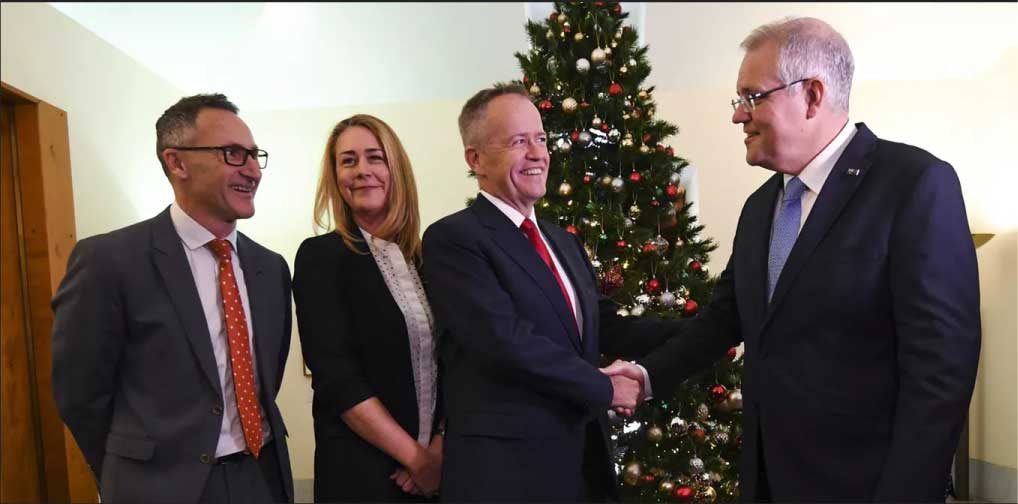The vomit principle, the dead bat, the freeze: how political spin doctors’ tactics aim to shape the news
Caroline Fisher, University of Canberra
It’s election season again and behind the scenes, the political “spin doctors” are working around the clock.
They are the campaign advisers, social media strategists, press secretaries and others who craft political messages to help “sell” their candidate. The term “spin” is contested, of course, and like the phrase “fake news” has become an easy retort for people who reject any version of events that does not reflect their own.
But the fact is any good spin doctor employs a range of overt and covert tactics to get their message across, and I’ve listed some below.
This list is drawn from a range of academic and other sources, and my own personal experience as a “spin doctor”. (I was once a media adviser to Labor’s Anna Bligh, a former Queensland premier. I am also married to one.) It is by no means exhaustive, but it provides an overview of some of the traditional tactics employed by political media advisers and politicians.
Read more:
It’s reputation that matters when spin doctors go back to the newsroom
Overt and covert spin tactics
British researcher Ivor Gaber talked about “overt” and “covert” tactics used by press secretaries in the Blair government in the UK.
Overt refers to standard or benign public relations tactics, such as writing press releases, staging events, giving speeches and appearing in the media.
Covert, on the other hand, refers to a range of cynical techniques to manage information – these are the more malign tactics most people associate with “spin”.
The list below contains a wide range of “covert” tactics drawn from a range of research and personal experience. Each of these tactics is employed in a bid to exert control over the way the news media report the message:
- the leak: these are strategic leaks offered by politicians or their staff to journalists, in exchange for no scrutiny. In other words, you only get the leak if you promise not to seek comment from the opposing side, or other critics. This is increasing and is a real problem
- the freeze: punishing journalists for negative reporting
- the spray: a form of bullying and intimidation, this is another way of punishing journalists for negative coverage. Many political reporters who file an unfavourable story can expect to “cop a spray” over the phone after it’s published
- the drip: the act of keeping favoured reporters on a drip of exclusive information
- staying on message: the goal of every public appearance or interview by a politician. In itself, it’s not a malign tactic, but the constant repetition of the same messages without answering questions can be a form of obfuscation
- pivoting: this refers to politicians shifting away from a difficult question or issue to the one he or she wants to talk about
- the vomit principle: this rule of thumb is widely referred to in political offices. The idea is that if you repeat something so often you feel like vomiting, only then is it likely to be cutting through with the public
- playing a dead bat: this refers to not responding to a media inquiry or giving a minimal response in an effort to kill the story
- the truth, but not the whole truth: this refers to being selective with what one reveals, sharing only the most beneficial or least damaging information
- throwing out the bodies/taking out the garbage: these tactics are used to disclose damaging information under the cover of a major distraction. The classic example often used is that of Jo Moore, a media adviser in the Blair government in the UK. On the day of the 9/11 attacks she sent out an email saying: “It is now a very good day to get out anything we want to bury. Councillors expenses?” Other common days to bury bad news are Christmas Eve, New Year’s Eve, grand final day, Melbourne Cup day, or a distraction like a royal visit
- get rid of it now: the aim of this tactic is to release all of the damaging information on an issue at one time, so the negative story can be dealt with quickly rather than allowing it to bleed on for weeks in the media. One media adviser I interviewed explained it like this: “It’s a truism in politics – If you’ve got to eat a shit sandwich you’ve got to eat it straight away… The advice was always, ‘Get rid of it now. Go and deal with it now’.”
- fire-breaking: setting up or staging a diversion to distract attention away from another issue. In the film Wag the Dog, the US president fabricates a war in Albania to distract from a sex scandal. Less extreme examples would be launching a new policy to distract from a negative issue in an attempt to shift the media’s attention
- kite-flying: this means testing or floating an idea before making a commitment to announce it
- feeding or starving a story: feeding a story means keeping it alive by commenting on it in the media. Starving a story means starving it of oxygen by not commenting on it. The theory being that after a while the media will get bored and move on
- keeping out of the media/being a small target: this is a useful tactic if the politician is unpopular and affects the polls, has a controversial portfolio or is an accident-prone poor performer
- flying under the radar: this refers to just quietly getting on with things without publicising it
- dishing dirt: this is where old claims suddenly emerge publicly before or during an election in an effort to smear someone’s reputation. The “dirt” can come from outside or inside a party. It’s a tactic used to try to destroy someone’s career
- dog-whistling: using specific subtle language and messages to target a particular section of the audience
- wedging: this tactic involves raising an issue that is popular in the electorate and sensitive to the party you are opposing to “wedge” them in to a difficult position and sow division in the party.
To hear Caroline Fisher in conversation with Michelle Grattan in a special election spin-themed episode of our podcast Trust Me, I’m An Expert, click here or search for it in your podcast app.
New to podcasts?
Podcasts are often best enjoyed using a podcast app. All iPhones come with the Apple Podcasts app already installed, or you may want to listen and subscribe on another app such as Pocket Casts (click here to listen to Trust Me, I’m An Expert on Pocket Casts).
You can also hear us on Stitcher, Spotify or any of the apps below. Just pick a service from one of those listed below and click on the icon to find Trust Me, I’m An Expert.







Caroline Fisher, Assistant Professor in Journalism, University of Canberra
This article is republished from The Conversation under a Creative Commons license. Read the original article.





































